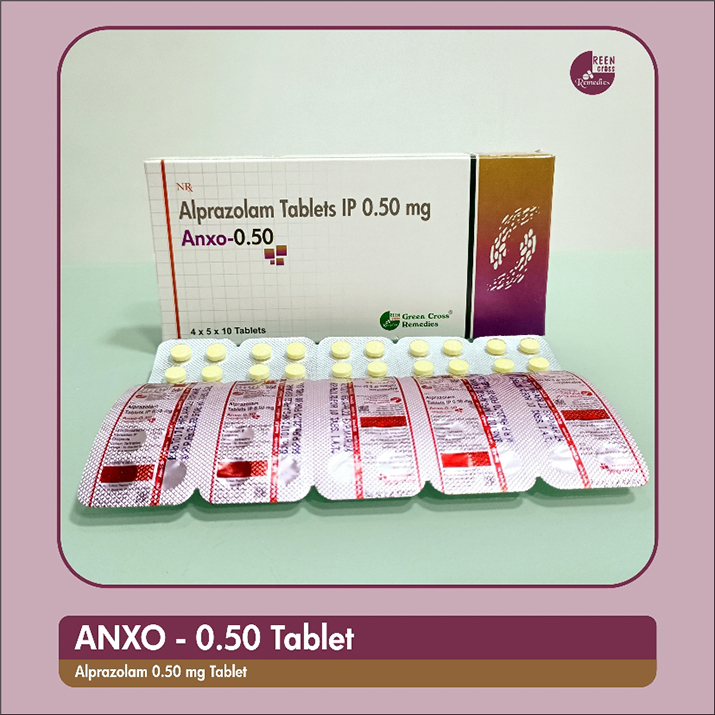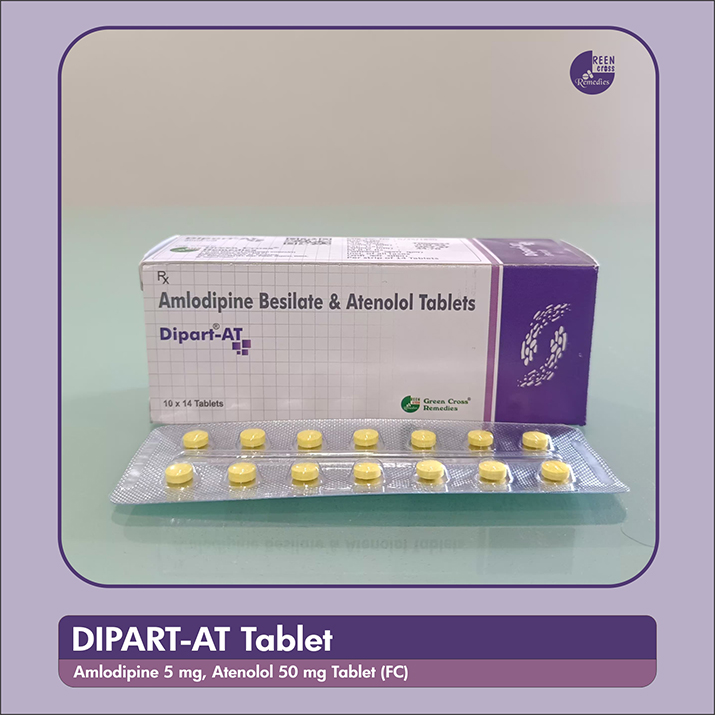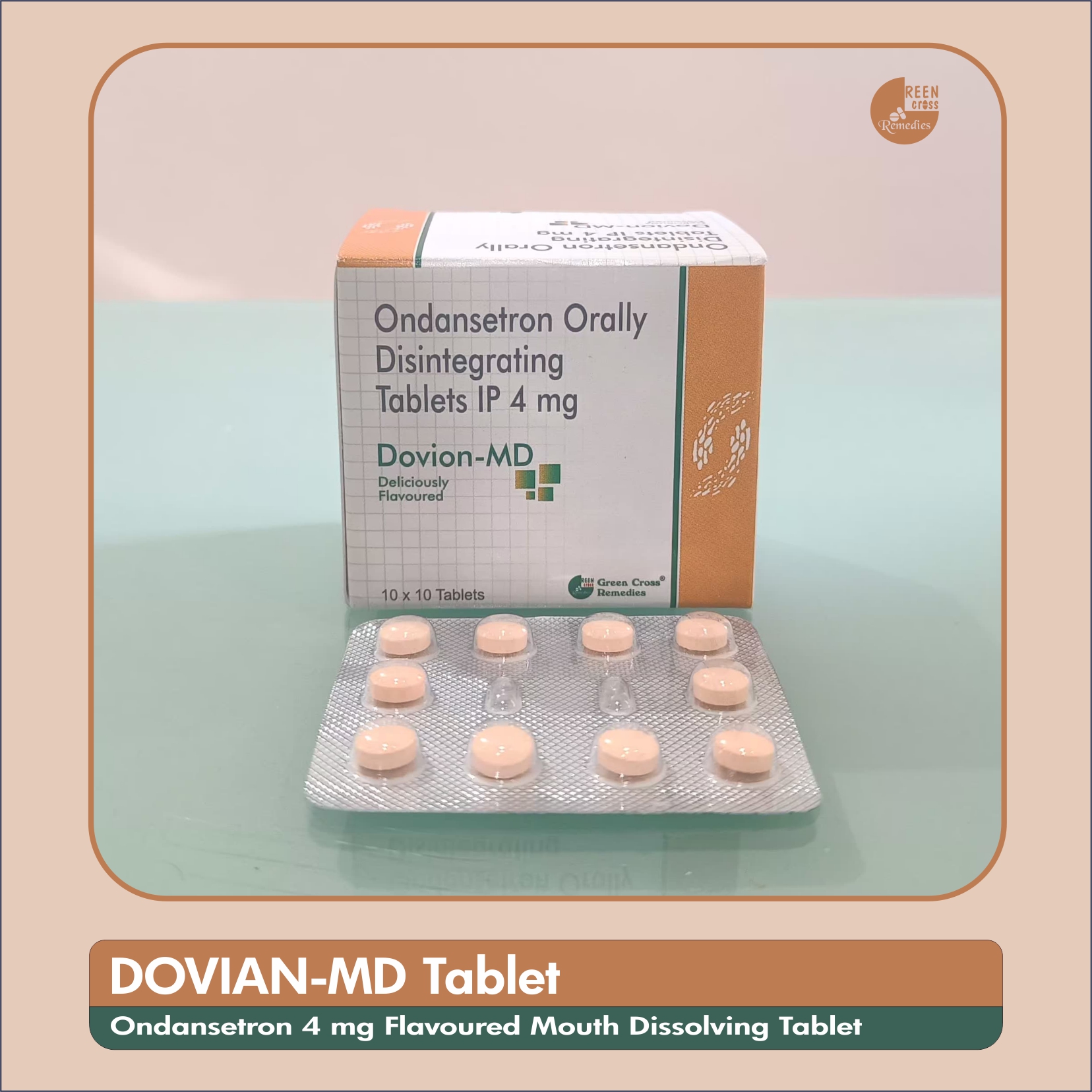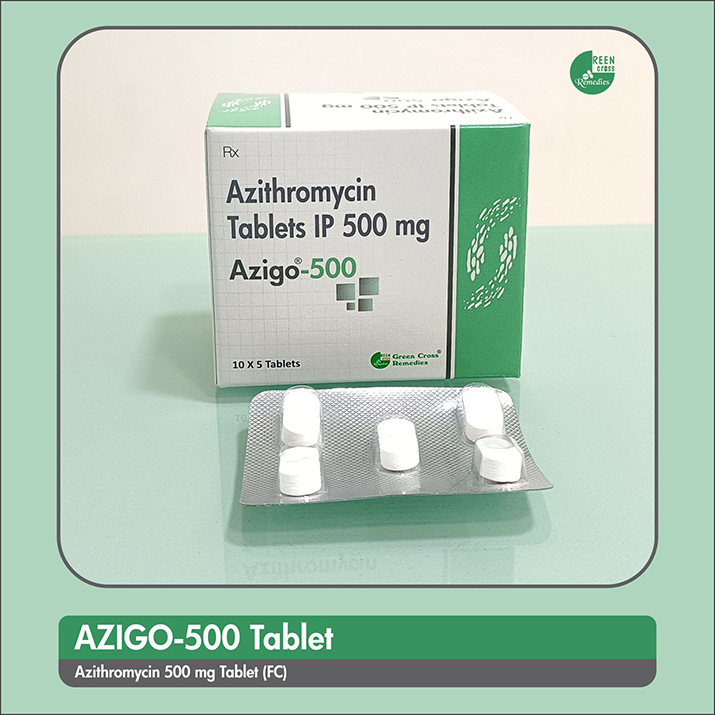ANXO 0.50 Tablet
Alprazolam 0.50 mg Tablet Use, Indication, Side Effects, Dosage, Mechanism of Action, Price, Contra-Indications, Drug Interactions As Description|MRP: 21.70 (10 Tablet)
PACK: 10 Tablet
MRP: 21.70
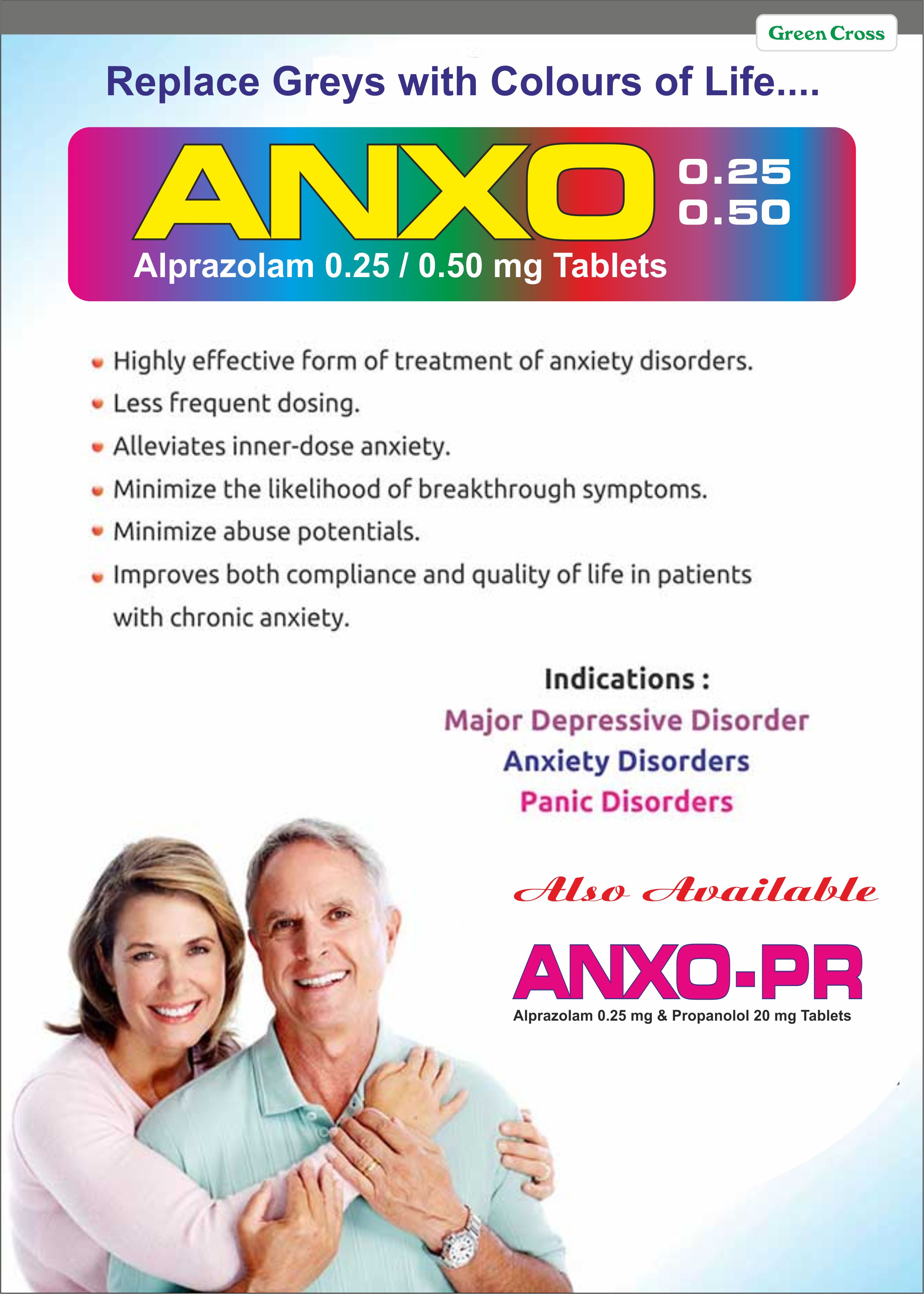
Alprazolam 0.50 mg Tablet
ANXO 0.50 Tablet
ANXO 0.50 Tablet contains Alprazolam 0.50 mg, designed to effectively manage anxiety disorders. Manufactured by Green Cross Remedies, this product provides relief from anxiety symptoms and panic attacks.
Composition: Each tablet contains Alprazolam 0.50 mg.
Uses:
ANXO 0.50 Tablet is primarily indicated for the management of anxiety disorders, including generalized anxiety disorder (GAD) and panic disorder. It helps alleviate feelings of anxiety, tension, and panic, promoting a sense of calm.
Uses and Indications:
ANXO 0.50 Tablet, containing Alprazolam 0.50 mg, is primarily prescribed for the following uses and indications:
1.Management of Anxiety Disorders:
- ANXO 0.50 Tablet is effective in treating various anxiety disorders, including generalized anxiety disorder (GAD), helping to reduce excessive worry, tension, and restlessness.
2.Panic Disorder:
- It is indicated for the treatment of panic disorder, characterized by recurrent panic attacks. The medication helps to alleviate the intensity and frequency of these attacks.
3.Short-term Relief of Anxiety Symptoms:
- ANXO 0.50 Tablet can provide short-term relief from anxiety symptoms associated with stress, allowing individuals to cope better in challenging situations.
4.Insomnia Related to Anxiety:
- While not primarily prescribed for sleep disorders, ANXO 0.50 may help individuals whose anxiety interferes with sleep, promoting relaxation.
5.Preoperative Anxiety:
- It may be used to manage anxiety in patients prior to surgical procedures, helping to calm nerves and reduce pre-surgery stress.
Dosage:
The dosage of ANXO 0.50 Tablet should be determined by a healthcare professional based on individual needs and response to treatment. It is important to follow the prescribed dosage instructions.
Mechanism of Action:
Alprazolam, a benzodiazepine, acts on the central nervous system by enhancing the effects of a natural chemical in the body (GABA). This results in a calming effect, reducing anxiety and associated symptoms.
Side Effects:
Common side effects may include drowsiness, dizziness, fatigue, and dry mouth. Serious side effects are rare but can occur; seek medical attention if you experience severe reactions.
Contraindications:
ANXO 0.50 Tablet is contraindicated in individuals with a known allergy to Alprazolam or other benzodiazepines. It should not be used during pregnancy or breastfeeding without consulting a healthcare provider.
Drug Interactions:
Inform your doctor of all medications and supplements you are taking, as ANXO 0.50 Tablet may interact with other drugs, potentially altering effectiveness or increasing the risk of side effects.
Conclusion:
ANXO 0.50 Tablet is a trusted choice for managing anxiety and panic disorders. Always consult with a healthcare professional before starting or adjusting any medication regimen.
Disclaimer:
This information is intended for the use of Registered Medical Practitioners, Hospitals, Pharmaceutical Company Field Staff, and Pharmacies Only.
